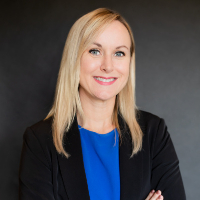Gloster Workout Lawyer, Louisiana
Sponsored Law Firm
-
 x
x

Click For More Info:
-
Simon, Fitzgerald, Cooke, Reed and Welch
4700 Line Ave Ste 200 Shreveport, LA 71106» view mapBankruptcy & Debt Law Experienced Attorneys Serving You
The law firm of Simon, Fitzgerald, Cooke, Reed and Welch has helped thousands of people find true relief from debt through bankruptcy
800-769-0341
Not enough matches for Gloster Workout lawyer.
Below are all Gloster Bankruptcy & Debt lawyers.
Kelli Rene Cook
✓ VERIFIEDBankruptcy & Debt, Foreclosure, Reorganization, Credit & Debt, Collection
Kelli Cook is a practicing lawyer in the state of Louisiana specializing in Bankruptcy. Ms. Cook received her J.D. from the Louisiana State University... (more)
Lars Laban Levy
✓ VERIFIEDBankruptcy & Debt
L. LABAN LEVY is a partner with the law firm of Simon, Fitzgerald, Cooke, Reed & Welch. Mr. Levy graduated from Northwestern State University with a B... (more)
Keith M. Welch
Consumer Bankruptcy, Consumer Bankruptcy, Consumer Bankruptcy, Bankruptcy
Status: In Good Standing
David F Butterfield
Environmental Law, Business, Bankruptcy & Debt, Personal Injury
Status: In Good Standing
David Keith Welch
Criminal, Bankruptcy, Bankruptcy & Debt
Status: In Good Standing Licensed: 12 Years
 Lars Levy Ste 200 Shreveport, LA
Lars Levy Ste 200 Shreveport, LA AboutSimon, Fitzgerald, Cooke, Reed and Welch
AboutSimon, Fitzgerald, Cooke, Reed and Welch Practice AreasExpertise
Practice AreasExpertise


